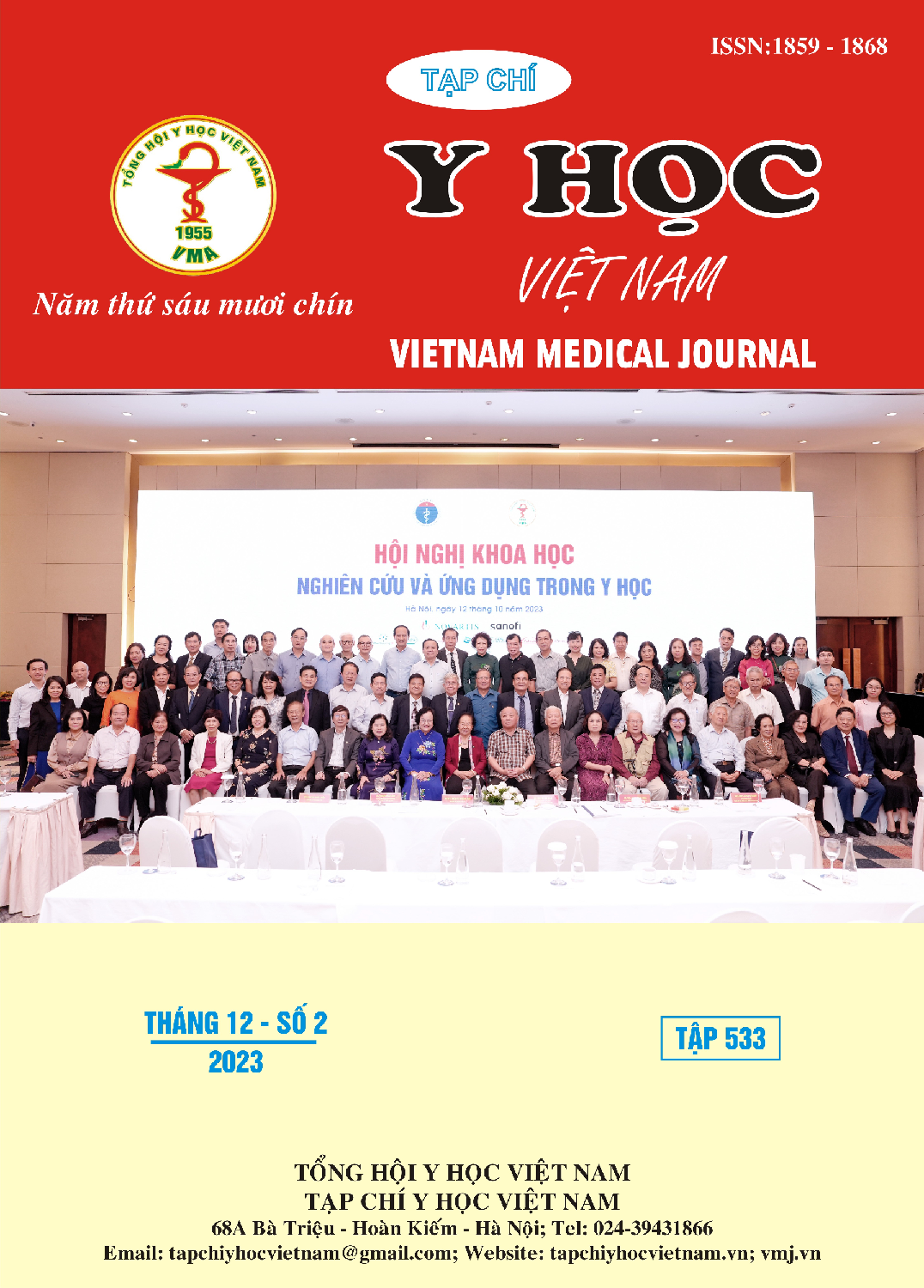VALIDITY AND RELIABILITY OF THE FALL-RELATED HEALTH BELIEF SCALE TO MEASURE FALL PREVENTION ATTITUDES OF VIETNAMESE ELDERLY PEOPLE
Main Article Content
Abstract
Objective: Translate in to Vietnamese and evaluate the validity and reliability of the fall-related health belief scale to measure fall prevention attitudes of Vietnamese elderly people. Method: This study was conducted on 330 elderly people from January 2022 to May 2022 in Tan Phong commune, Vu Thu district, Thai Binh province. Translated by reverse translation and tested on 30 elderly people to adjust the translation. Evaluating the validity of the content with the opinions of 5 experts. Reliability was measured by Cronbach's alpha coefficient in 300 elderly people, the test was repeated a second time on 90 elderly people over two weeks. Intra-Class Correlation index (ICC) was used to measure test-retest reliability to find out the correlation between the first assessment score and the second assessment score. Results: The Vietnamese version of the fall-related health belief scale showed good content validity, with I-CVI, and S-CVI scores for all 26 items being 1. Internal consistency with index Cronbach's alpha of the 7 domains ranges from 0.72 to 0.89, the whole scale being 0.95. Test–retest reliability ICC ranging from 0.87-0.99 (p-value<0.001) was determined with good results. Conclusion: The Vietnamese version of the falls-related health beliefs scale can be considered a valid and highly reliable tool to measure fall prevention attitudes of Vietnamese elderly people.
Article Details
References
2. Beaton D., Bombardier C., Guillemin F. et al (2002), Recommendations for the cross-cultural adaptation of health status measures, New York: American Academy of Orthopaedic Surgeons, 12, 1-9.
3. Cao Zhi-Juan, Chen Yue, Wang Shu-Mei (2014), Health belief model based evaluation of school health education programme for injury prevention among high school students in the community context, BMC public health, 14, 1-8.
4. Koo T. K, Li M. Y (2016), A guideline of selecting and reporting intraclass correlation coefficients for reliability research, Journal of chiropractic medicine, 15(2), 155-163.
5. Li F., Zhou D., Chen Y. et al (2019), The association between health beliefs and fall-related behaviors and its implication for fall intervention among Chinese elderly, International journal of environmental research and public health. 16(23), 4774.
6. Lopes A. R., Trelha C. S. (2013), Translation, cultural adaptation and evaluation of the psychometric properties of the Falls Risk Awareness Questionnaire (FRAQ): FRAQ-Brazil, Brazilian journal of physical therapy. 17, 593-605.
7. Rosenstock I. M (1974), The health belief model and preventive health behavior, Health education monographs, 2(4), 354-386.
8. Tsang S., Royse C. F., Terkawi A. S. (2017), Guidelines for developing, translating, and validating a questionnaire in perioperative and pain medicine, Saudi journal of anaesthesia, 11(Suppl 1), S80.


